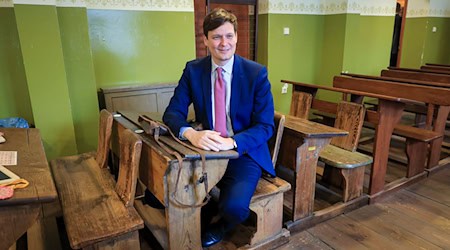Several parliamentary groups in the state parliament are in favor of the proposal for statutory educational leave. "Educational leave is an important impetus for strengthening voluntary work and civil society," said Gerald Eisenblätter, deputy leader of the SPD parliamentary group, after a hearing of experts in the Committee on Economic Affairs, Labor, Energy and Climate Protection.
Educational leave already exists in 14 federal states
A bill for educational leave was introduced to the state parliament as a popular motion last March. It aims to guarantee that employees receive five days of paid leave per year for further education. An alliance of trade unions, political parties and church, independent and social organizations collected more than 55,000 signatures. As the governing coalition, the CDU and SPD have agreed on three days of educational leave.
There is already a legal entitlement to educational leave in 14 federal states. Only Bavaria and Saxony have so far made an exception.
"The coalition agreement for this legislature applies," said Eisenblätter. He expects the CDU and SPD parliamentary groups to find a democratic majority for the law.
Greens and Left Party back Bildungszeit
The Green parliamentary group is also calling for the introduction of Bildungszeit. "The people of Saxony finally want the right to educational leave," said Christin Melcher, spokesperson for education. Parliamentary group colleague Wolfram Günther added: "The burden on companies is therefore controllable." In addition, time off can be denied for operational reasons.
The left-wing parliamentary group also supports the motion. Luise Neuhaus-Wartenberg, spokesperson for the left-wing parliamentary group for education policy, said in a press release that there was no reason to limit educational leave to three days, as proposed by the CDU and SPD. "That would be progress, but Saxony would not catch up with most other federal states."
Vincent Seeberger, Chairman of the Saxony Children's and Youth Ring, also spoke out in favor of the five days of education time called for in the motion. "We need enough time to qualify young people," he said according to a press release. For example, 30 hours are required to train as a youth leader. Well-trained professionals and volunteer support are needed to look after children and young people.
Trade warns of rising prices
The President of the Saxon Trade Association, Uwe Nostitz, expressed his disapproval. The introduction of training time would create an additional burden for small companies in particular and reduce productivity, he said in a statement. "This makes craft services more expensive and leads to price increases for customers."
Copyright 2025, dpa (www.dpa.de). All rights reserved










